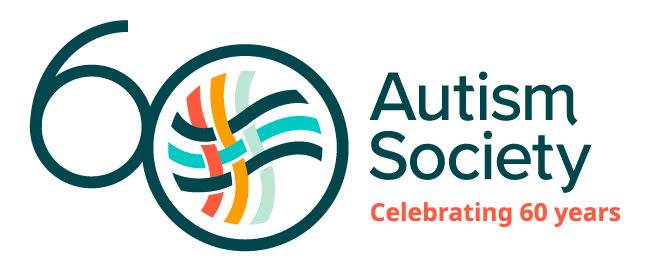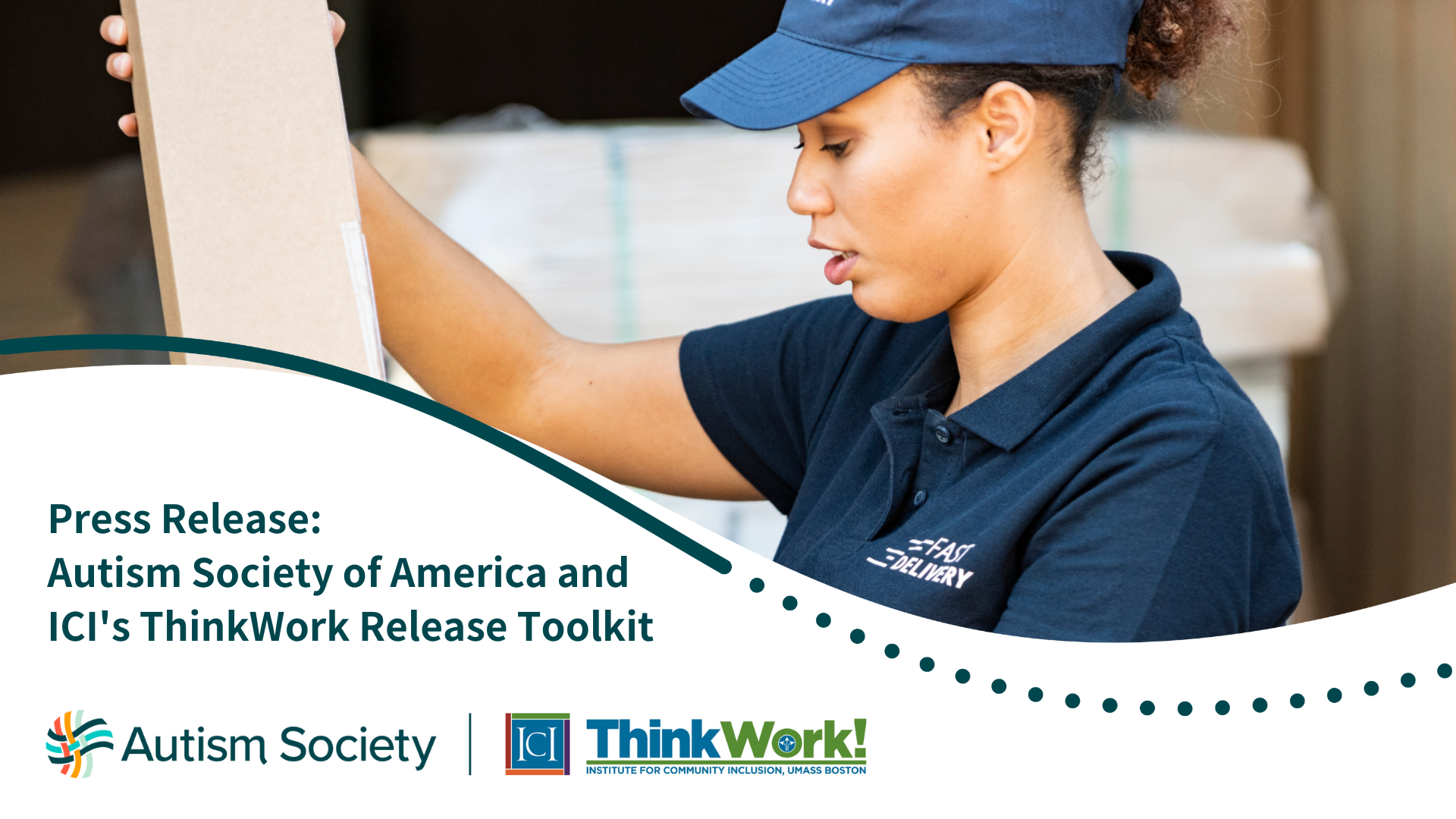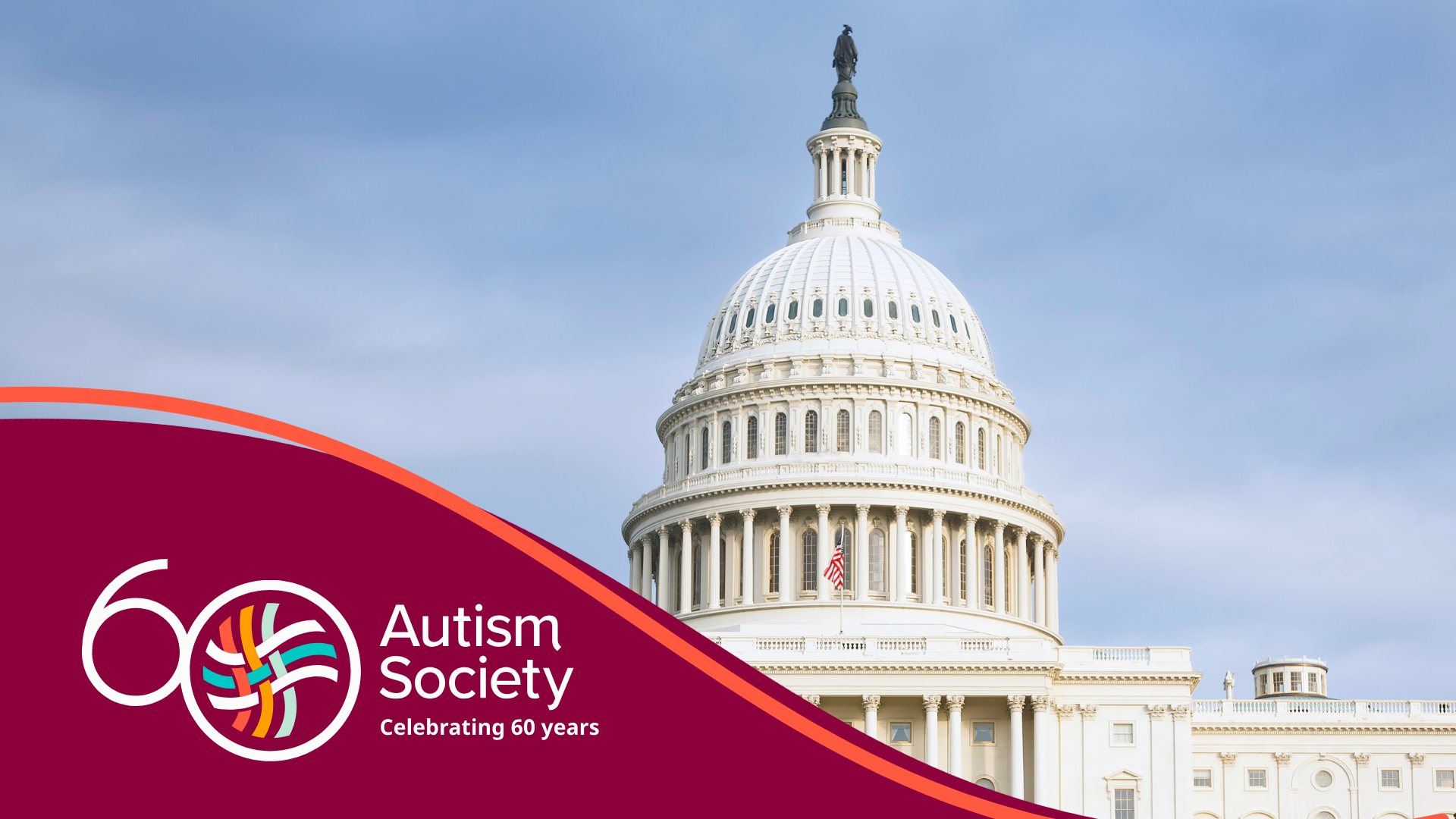
In this issue of Capitol Connection, November 5 is election day. Please use the Autism Society’s Election Center to see a list of candidates and where to vote, among other resources. This issue contains important administrative guidance on early intervention, Social Security updates, and a President’s Committee report with recommendations on improving home and community-based services.
Medicaid Buy-In Bills Progress in Congress
On September 18, Senators Bob Casey (D-PA) and Marsha Blackburn (R-TN) introduced the Ensuring Access to Medicaid Buy-In Programs Act (S. 5070). The Medicaid “buy-in” program allows workers with disabilities to maintain their Medicaid coverage when they accept higher-paying jobs and exceed Medicaid’s income eligibility limits. However, when they turn 65, they often lose this benefit, which can compel many to stop working to maintain access to these essential services that private insurance doesn’t cover. This legislation aims to eliminate that limitation, enabling individuals with disabilities to continue working beyond age 65 while still receiving Medicaid benefits if they choose to do so. The House version of the bill (H.R. 8107) passed unanimously by the House Committee on Energy and Commerce. The sponsors, Representatives Juan Ciscomani (R-AZ-6) and Marie Gluesenkamp Perez (D-WA) advocate for it to pass in the lame-duck session following the elections.
Letter on Office of Caregiver Health
The Autism Society signed onto a letter led by the Rosalynn Carter Institute for Caregivers with 165 additional organizations requesting the President to create an Office of Caregiver Health within the U.S. Department of Health and Human Services (HHS).
27 Members of Congress then wrote a letter to Secretary Becerra, who leads HHS, asking him to establish an Office of Caregiver Health at HHS to help support family caregivers. This would be a critical role to ensure that family caregivers are represented in health policy, regulation, program, and budget negotiations.
SSA Updates
The Social Security Administration (SSA) announced its cost-of-living-adjustment, or COLA, rate will be 2.5 percent in 2025. This will raise the maximum federal benefit for Supplemental Security Income (SSI) to $967 for an individual and $1,450 for a couple. See more in SSA’s fact sheet. SSA also announced important new updates to SSI, including no longer using food in In-Kind Support and Maintenance (ISM) calculations, expanding the rental subsidy policy exception, and expanding the definition of a public assistance household. This will increase monthly supplemental income for thousands of beneficiaries. Read the press release for more details and share widely.
GAO Report on Access to Childcare
At the request of Senators Casey (D-PA), Hassan (D-NH), and Duckworth (D-IL), the General Accounting Office (GAO) released a report on childcare accessibility: Child Care Accessibility: Agencies Can Further Coordinate to Better Serve Families with Disabilities | U.S. GAO. The report found that families of children with disabilities and parents with disabilities—including physical, intellectual, and developmental disabilities—reported various barriers to finding and using childcare programs, thereby affecting their family’s well-being. GAO made a recommendation to the Department of Education and the Department of Health and Human Services to further coordinate with one another to promote resources designed to help parents of children with disabilities. Both agencies agreed to the recommendations.
New Report on Home and Community-based Services
The President’s Committee for People with Intellectual Disabilities delivered a report: “Advancing Independence and Community Integration for All: Supporting Individuals with Intellectual Disabilities through High-Quality Home and Community-Based Services.” This report sent to President Biden addresses the critical need for high-quality home and community-based services for individuals with intellectual and developmental disabilities. The report highlights four key focus areas: the challenges faced by direct support professionals, the promotion of competitive integrated employment, the importance of community living, and the role of federal support programs. It emphasizes the significant shortage of direct support professionals and the need for better training and support for these professionals to enhance their services. Additionally, the report advocates for increased employment opportunities for individuals with intellectual and developmental disabilities and calls for reforms in federal programs like Medicaid and Supplemental Security Income. State advocates can use this resource to develop state legislative goals as well.
CMS Guidance on EPSDT
The Centers for Medicare & Medicaid Services (CMS) released an important state health official guidance letter on how to improve awareness and effectiveness of Medicaid’s Early and Periodic Screening, Diagnostic and Treatment (EPSDT) benefit. This guidance was required as part of the Biparisan Safer Communities Act passed earlier this year, which among other things, required oversight and guidance of EPSDT’s requirements. As concern grows that the EPSDT benefit is not being uniformly followed across managed care plans and states, CMS released new guidance clarifying the requirements of states and plans that are critical for the autism community. These requirements include access to services in the least restrictive setting, mandatory assessment of physical, developmental, and mental health, and paying for out-of-state services if not readily available. The Autism Society has urged state affiliates to use this guidance to push states to implement the law as intended. This guidance has the potential to lead to more children with autism getting diagnosed and receiving interventions earlier. The National Health Law Program held a webinar highlighting key aspects of the new guidance. See also Disability Scoop article.
Fact Sheet on New Section 504 Regulations
The U.S. Department of Health and Human Services’ (HHS) Office for Civil Rights (OCR) released a section-by-section fact sheet to provide an overview of who is protected by Section 504 and who is obligated to comply with Section 504. It also aims to inform recipients of Federal financial assistance about new sections within the rule, explain revisions made to ensure consistency with the Americans with Disabilities Act (ADA), advise recipients of their administrative responsibilities to ensure compliance with the rule and provide information about HHS OCR’s enforcement process.
Improving HCBS Waivers Through Public Comment Webinar
The National Health Law Program held a webinar to empower participants to effectively comment on HCBS waivers, emphasizing that personal experiences with waivers are valuable for advocacy. Section 1915(c) waivers allow states to provide specific services to targeted populations, maintain waitlists, and offer different services than those available under general Medicaid. The design and implementation of these waivers can vary significantly across states. Public comments are essential for influencing waiver changes, as states are required to summarize public input and explain any comments that were not adopted. Effective comments should be organized and can address various issues, including eligibility, service design, and participant rights. Many issues are navigating the waivers including eligibility criteria, cost limits, and the processes for person-centered planning.
Department of Labor’s blog post for NDEAM
The U.S. Department of Labor posted a blog to kick off National Disability Employment Awareness Month (NDEAM). The blog highlights the administration’s commitment to ensuring that people with disabilities have access to quality employment opportunities. The article discusses the theme for NDEAM, the release of a customizable poster by the Office of Disability Employment Policy, and the launch of the Good Jobs Initiative. It also mentions the Investing in America agenda, the creation of new Workforce Hubs, and updated federal grant guidance aimed at promoting equity in job recruitment and hiring practices. The overarching goal is to create a more inclusive job market that benefits all workers, including those with disabilities.
Justice Corner
Robert Roberson Case
The Autism Justice Center and Autism Society of Texas have been working tirelessly alongside the Innocence Project, to stop the planned execution of Robert Roberson, a late-diagnosed Autistic man; Mr. Roberson was convicted of murdering his toddler on the basis of “shaken baby syndrome,” a science that is no longer deemed acceptable. Our action alerts have garnered more than 320+ letters to Texas Gov. Greg Abbott. The Dallas Morning News published our letter-to-the-editor asking for clemency on October 13, 2024, and Christopher Banks, spoke directly to the communications director for the Texas Board of Pardons and Paroles. Thank you to those who responded to our action alert. While the execution is scheduled for October 17, his lawyers filed a petition to the US Supreme Court requesting a stay of the execution. In addition, a committee in the Texas legislature issued a subpoena for Roberson to testify as it reconsiders the lawfulness of his conviction. We will keep you informed.
Share:






